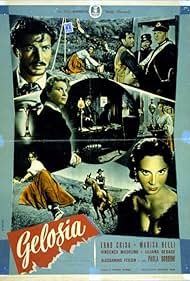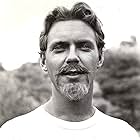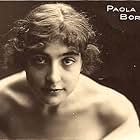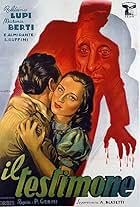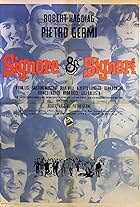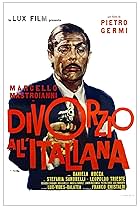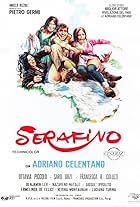In every aspect, this film is overwhelmingly impressing. Everything is supreme, the actors, the story, Carlo Rustichelli's best music, the cinematography, and above all the constant vicinity or border line feeling to the other side. Although it is a very realistic film sticking firmly to hands-on feeling of the ground, with nothing supernatural or parapsychological at all, it gives a haunting sense of what can only be termed as metaphysical transcendence - when the Marchese faces the cross and the crucified Christ in his chapel, it is just an ordinary dumb statue like any chapel image, but in the eyes of the marchese it comes almost piercingly alive and triggers his final illness, and although he never expresses his bad conscience, it becomes the more monstrous as we are made to feel it with him - the masterful direction brings out his feelings unconsciously (by his facial expressions and the music) so we can't miss it but have to feel the same atrocious agony, which only is exacerbated whatever he does. The priest (Alessandro Fersen) plays a very important part by his silence and obligation of silence as his confessor, but his eyes speak more than volumes of eloquence as the marchese sees him for the last time. As one reviewer observed, this must be the epitome of both Pietro Germi, Carlo Rustichelli and all the actors - while Luigi Capuana's novel, which he worked on for 15 years, is the solid ground and foundation of this universal passion drama.
